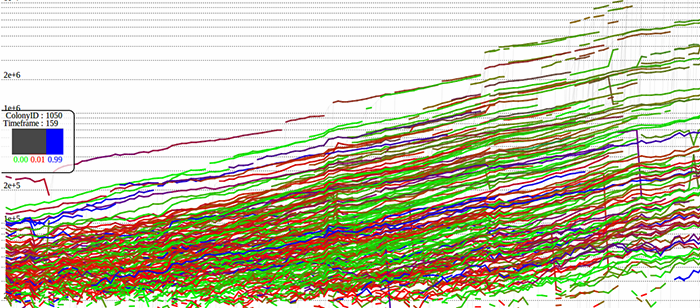
CHMPR Seminar
To Measure or not to Measure Terabyte-Sized Images?
Peter Bajcsy, PhD
Information Technology Laboratory
National Institute for Standards and Technology
3:00pm Wednesday, 9 March 2016, ITE325b, UMBC
This talk will elaborate on a basic question “To Measure or Not To Measure Terabyte-Sized Images?” posed by William Shakespeare if he were a bench scientist at NIST. This basic question is a dilemma for many traditional scientists that operate imaging instruments capable of acquiring very large quantities of images. However, manual analyses of terabyte-sized images and insufficient software and computational hardware resources prevent scientists from making new discoveries, increasing statistical confidence of data-driven conclusions, and improving reproducibility of reported results.
The motivation for our work comes from experimental systems for imaging and analyzing human pluripotent stem cell cultures at the spatial and temporal coverages that lead to terabyte-sized image data. The objective of such an unprecedented cell study is to characterize specimens at high statistical significance in order to guide a repeatable growth of high quality stem cell colonies. To pursue this objective, multiple computer and computational science problems have to be overcome including image correction (flat-field, dark current and background), stitching, segmentation, tracking, re-projection, feature extraction, data-driven modeling and then representation of large images for interactive visualization and measurements in a web browser.
I will outline and demonstrate web-based solutions deployed at NIST that have enabled new insights in cell biology using TB-sized images. Interactive access to about 3TB of image and image feature data is available at https://isg.nist.gov/deepzoomweb/.
Peter Bajcsy received his Ph.D. in Electrical and Computer Engineering in 1997 from the University of Illinois at Urbana-Champaign and a M.S. in Electrical and Computer Engineering in 1994 from the University of Pennsylvania. He worked for machine vision, government contracting, and research and educational institutions before joining the National Institute of Standards and Technology in 2011. At NIST, he has been leading a project focusing on the application of computational science in biological metrology, and specifically stem cell characterization at very large scales. Peter’s area of research is large-scale image-based analyses and syntheses using mathematical, statistical and computational models while leveraging computer science fields such as image processing, machine learning, computer vision, and pattern recognition. He has co-authored more than more than 27 journal papers and eight books or book chapters, and close to 100 conference papers.